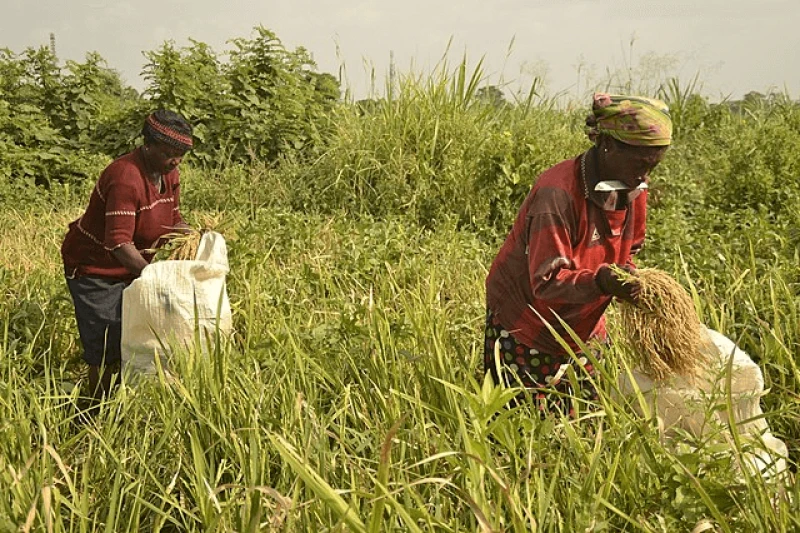Here’s how CRISPR is evolving into a tool to protect small African farmers
Here’s how CRISPR is evolving into a tool to protect small African farmers


A research team has used genome editing to produce a rice variety resistant to yellow mottle virus, which is responsible for high crop losses in sub-Saharan Africa, and which particularly affects small-scale farmers.
The development of the resistant variety, described in a new paper in the journal Plant Biotechnology, is just the first step towards generating resistant, locally adapted varieties for food producers in Africa.
Rice yellow mottle virus (RYMV) is spread by mammals and insects and direct leaf-to-leaf contact. In Africa, the majority of farm plots are less than one hectare in size, and between 10-100% of the rice harvests are regularly lost to the virus.
“The only real protection is to develop rice varieties that possess a resistance gene against RYMV, which would make the plant invulnerable,” says Dr Yugander Arra of Heinrich Heine University Düsseldorf (HHU), Germany, and lead author of the study.
Their results confirm that disrupting the RYMVR gene in the Kitaake variety, a Japonica rice variety, confers resistance without penalising its high yield, at least under greenhouse conditions.
“The next step will be to edit [the mutation] in elite varieties that are better adapted to rice culture in rainfed lowland and irrigated areas of Africa, where rice production is particularly affected by RYMV disease,” the authors write.
This is an excerpt. Read the original post here

 | Videos | More... |

Video: Nuclear energy will destroy us? Global warming is an existential threat? Chemicals are massacring bees? Donate to the Green Industrial Complex!
 | Bees & Pollinators | More... |

GLP podcast: Science journalism is a mess. Here’s how to fix it

Mosquito massacre: Can we safely tackle malaria with a CRISPR gene drive?

Are we facing an ‘Insect Apocalypse’ caused by ‘intensive, industrial’ farming and agricultural chemicals? The media say yes; Science says ‘no’
 | Infographics | More... |

Infographic: Global regulatory and health research agencies on whether glyphosate causes cancer
 | GMO FAQs | More... |

Why is there controversy over GMO foods but not GMO drugs?

How are GMOs labeled around the world?

How does genetic engineering differ from conventional breeding?
 | GLP Profiles | More... |

Alex Jones: Right-wing conspiracy theorist stokes fear of GMOs, pesticides to sell ‘health supplements’




 Viewpoint — Fact checking MAHA mythmakers: How wellness influencers and RFK, Jr. undermine American science and health
Viewpoint — Fact checking MAHA mythmakers: How wellness influencers and RFK, Jr. undermine American science and health Viewpoint: Video — Big Solar is gobbling up productive agricultural land and hurting farmers yet providing little energy or sustainabilty gains
Viewpoint: Video — Big Solar is gobbling up productive agricultural land and hurting farmers yet providing little energy or sustainabilty gains Fighting deforestation with CO2: Biotechnology breakthrough creates sustainable palm oil alternative for cosmetics
Fighting deforestation with CO2: Biotechnology breakthrough creates sustainable palm oil alternative for cosmetics Trust issues: What happens when therapists use ChatGPT?
Trust issues: What happens when therapists use ChatGPT? 30-year-old tomato line shows genetic resistance to devastating virus
30-year-old tomato line shows genetic resistance to devastating virus California, Washington, Oregon forge immunization alliance to safeguard vaccine access against federal undermining
California, Washington, Oregon forge immunization alliance to safeguard vaccine access against federal undermining The free-range chicken dilemma: Better for birds, but with substantial costs
The free-range chicken dilemma: Better for birds, but with substantial costs ‘You have to treat the brain first’: Rethinking chronic pain with Sanjay Gupta
‘You have to treat the brain first’: Rethinking chronic pain with Sanjay Gupta
